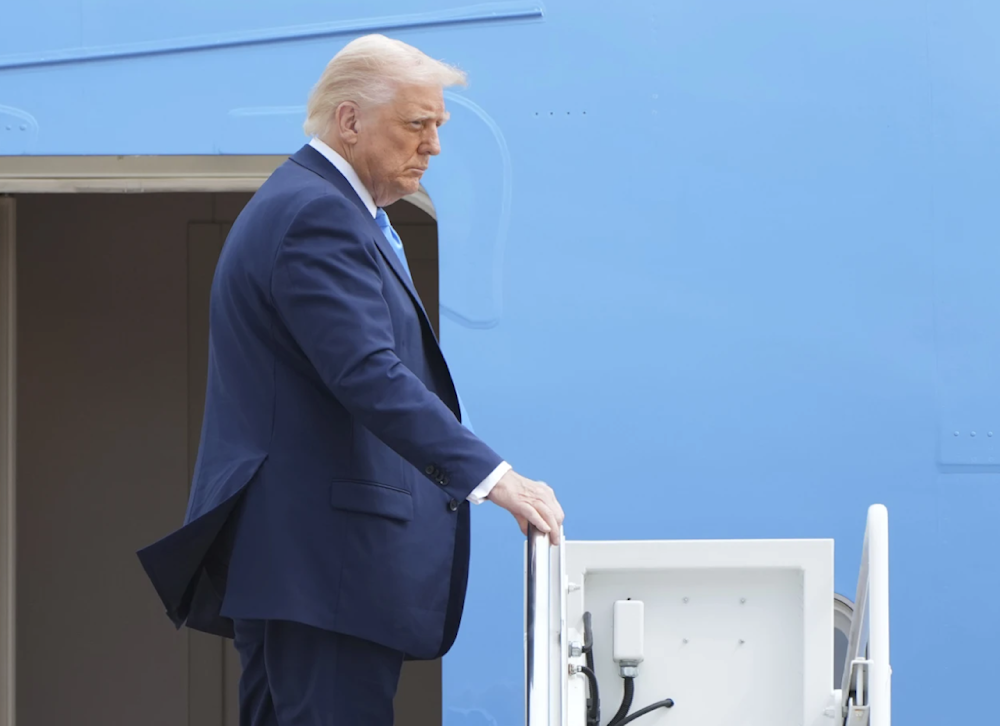Germany pushes to recruit US-based researchers amid Trump crackdown
German economists believe Germany has the capability to offer stability, freedom, and opportunity amid a "turbulent transformation" in the US academic system.
-

US President Donald Trump boards Air Force One at Joint Base Andrews, Maryland, on March 28, 2025. (AP)
German economists called for a recruiting drive on Tuesday to target US-based researchers upset with President Donald Trump's crackdown, claiming that Europe's top economy might profit from a "brain gain".
Eight economists wrote in Der Spiegel, urging the German government to establish up to 100 professorships in the country for outstanding academics residing in the United States.
They accused the US government of impeding academic freedom, citing budget cuts at Columbia and Johns Hopkins institutions, as well as "threats of student deportations."
"Germany and Europe now have a chance to reverse the 'brain drain' and bring world-class researchers to their own institutions," the statement underlined.
The writers, who include Moritz Schularick, the chairman of the prestigious Kiel Institute for the World Economy, proposed naming the recruiting effort after Lise Meitner and Albert Einstein, two German scientists who left Germany during the 1930s.
"As the US academic system undergoes a turbulent transformation, Germany can offer stability, freedom and opportunity," according to them.
They said that the United States' "once unassailable reputation as a global hub for research and academic freedom is beginning to crack."
The Trump administration has specifically targeted colleges that have seen significant protests in response to "Israel's" war on Gaza, and hundreds of students have had their visas canceled for participating in pro-Palestine rallies.
Officials originally reviewed $400 million in financing at the Columbia institution in New York and jailed a PhD student involved in pro-Palestine rallies, causing the institution to propose a package of concessions.
Johns Hopkins University, meanwhile, announced more than 2,000 layoffs after losing more than $800 million in government funding.
There have also been some worrying indicators for international academics planning to visit the United States.
Last month, a French space scientist was deported when he attempted to enter the nation after border authorities scanned the contents of his smartphone and accused him of making "hateful" statements against US policies, according to French officials.
However, US authorities denied the assertion, claiming he possessed classified information from a nuclear research laboratory.

 2 Min Read
2 Min Read









